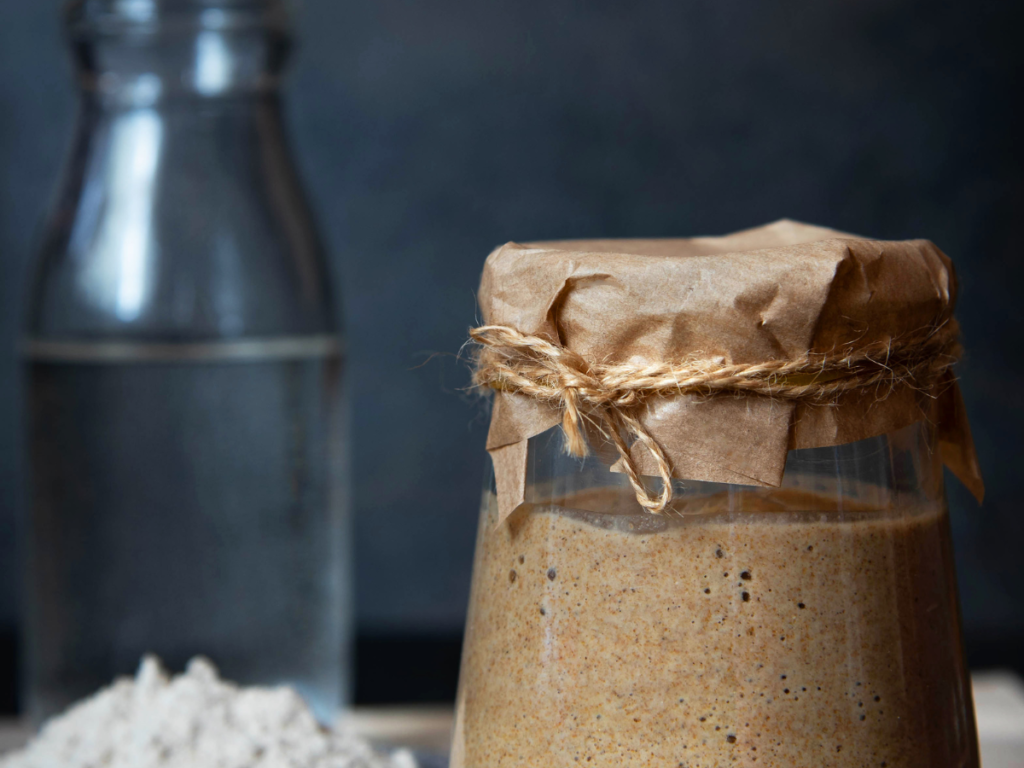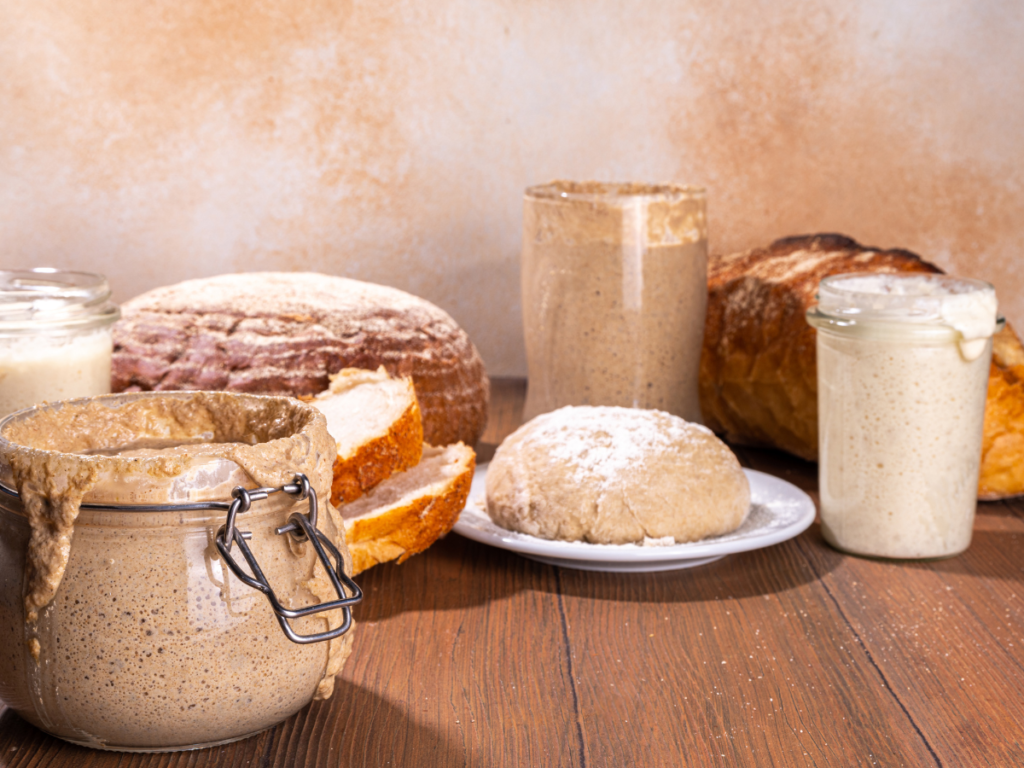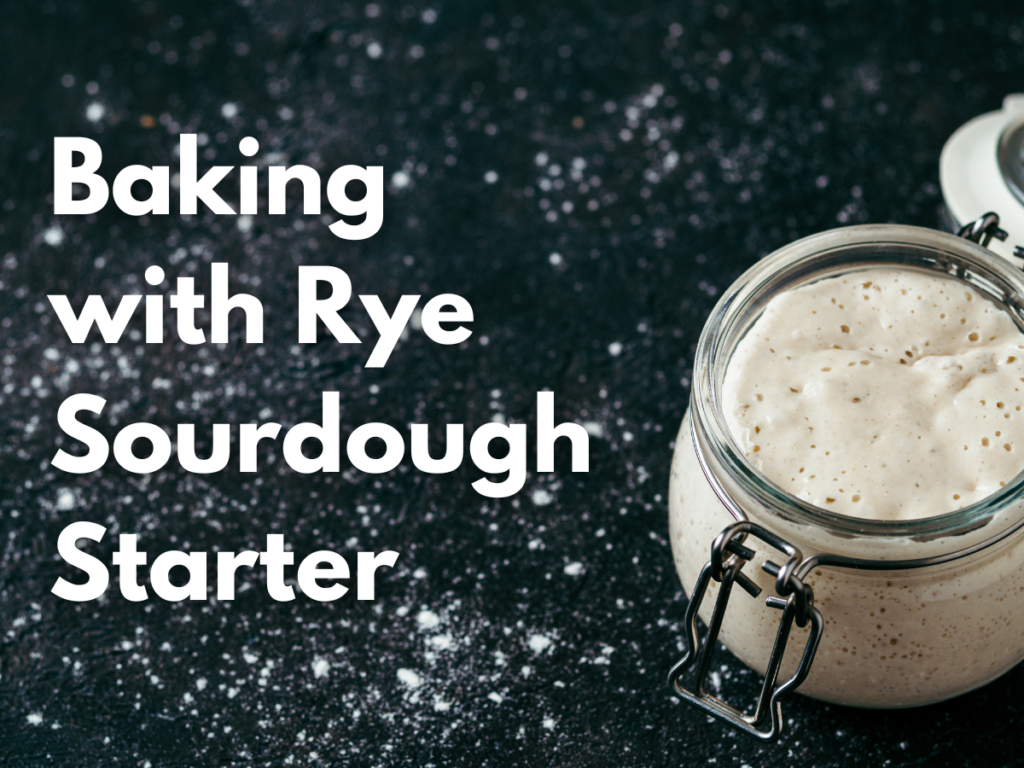
Introduction
Creating a sourdough starter is an essential step for any home baker looking to make sourdough bread. The type of flour used in the starter significantly influences the starter’s activity and the final bread’s flavor and texture. Among various flour options, rye flour has gained popularity. But is a rye sourdough starter better than one made with other types of flour? This article explores the differences and benefits of using rye flour in your sourdough starter, providing you with all the information needed to decide which type of flour is best for your baking needs.
What is a Sourdough Starter?
A sourdough starter, a blend of flour and water, harnesses wild yeast and bacteria from its surroundings. This mixture ferments, producing the leavening agents that give sourdough bread its rise and distinct flavor. The natural fermentation process is what sets sourdough bread apart from other types of bread made with commercial yeast. Typically, starters are made with wheat flour, but alternative flours like rye offer different characteristics that can enhance the starter’s performance and the final bread product.
A traditional sourdough starter involves mixing equal parts of flour and water and allowing it to sit at room temperature. Over time, natural yeasts and lactobacilli bacteria in the flour and the surrounding environment start to colonize the mixture. This fermentation process produces carbon dioxide gas, which causes the dough to rise, and lactic acid, which imparts the characteristic tangy flavor to sourdough bread.
Nutritional Comparison: Rye vs. Wheat Flour
Rye flour is rich in nutrients and enzymes that can benefit the sourdough fermentation process. Compared to wheat flour, rye flour contains:
- Higher levels of fiber
- More micronutrients such as magnesium and potassium
- A lower gluten content, which can be beneficial for those with gluten sensitivities
According to Serious Eats, rye flour is the most nutrient- and amylase-dense option, providing an excellent environment for wild yeast and bacteria to thrive. The high fiber content in rye flour not only aids in digestion but also helps feed the beneficial bacteria in the starter, promoting a healthier and more active fermentation process.
Amylase Content and Its Importance
Amylase is an enzyme that breaks down starches into sugars, providing food for the yeast and bacteria in the starter. Rye flour has a higher amylase content than wheat flour, which can lead to:
- Faster fermentation
- Increased starter activity
- A more robust sourdough culture
This is corroborated by a discussion on Reddit, where users noted that rye flour can accelerate starter growth and activity. The presence of higher levels of amylase in rye flour ensures that there is a steady supply of sugars for the yeast and bacteria to feed on, resulting in a more vigorous and resilient starter.
Fermentation Process with Rye Sourdough Starter

The fermentation process is crucial for developing the flavor and texture of sourdough bread. Using rye flour in your starter can affect the fermentation process by:
- Speeding up the rise of the dough
- Producing a more active starter
- Resulting in a tangier flavor profile
A rye sourdough starter tends to be more forgiving and easier to maintain, as noted by Weekend Bakery, making it a good choice for beginners. The faster fermentation and increased activity of a rye starter mean that it is more likely to remain healthy and active even with occasional neglect, which can be a significant advantage for home bakers who may not always be able to maintain a strict feeding schedule.
Flavor Profiles: Rye vs. Wheat Sourdough

The type of flour used in a sourdough starter greatly affects the flavor of the bread. Rye flour imparts a distinct, tangy flavor that many sourdough enthusiasts appreciate. This tanginess is due to the higher levels of lactic acid produced during the fermentation of rye flour. In contrast, wheat flour typically results in a milder, less sour flavor. The choice between rye and wheat ultimately depends on personal preference and desired bread characteristics.
For more on the differences between various types of sourdough, see What is the Difference Between Rye Sourdough and Regular Sourdough?. Rye flour tends to produce a denser crumb and a more robust flavor, while wheat flour produces a lighter, more delicate texture. Combining both flours can provide a balanced flavor and texture profile, making the bread appealing to a broader audience.
Maintaining a Rye Sourdough Starter

Maintaining a rye sourdough starter involves regular feeding and proper storage. Here are some tips:
- Feed the starter with equal parts rye flour and water
- Store it in a cool, dry place
- Consistently remove a portion of the starter before each feeding.
Rye starters are less likely to develop undesirable consistency issues and can often be more resilient to neglect. This resilience is due to the robust nature of the beneficial bacteria and yeast that thrive in rye flour. The higher fiber content also helps to maintain a stable and consistent fermentation environment, reducing the likelihood of the starter becoming overly acidic or developing unwanted off-flavors.
When feeding your rye starter, it is essential to use unbleached, whole-grain rye flour for the best results. The natural yeasts and bacteria present in whole-grain flour contribute to a more vigorous and healthy starter. Additionally, using filtered or non-chlorinated water can help maintain the delicate balance of the microbial community in your starter.
Baking with Rye Sourdough Starter

When baking with a rye sourdough starter, expect the following differences in your bread:
- A denser crumb
- A stronger, tangier flavor
- A darker crust
Popular recipes include rye sourdough loaves and mixed flour sourdough bread, which combine the benefits of both rye and wheat flours. If you’re interested in a specific recipe, check out this Sourdough Rye Bread Recipe. The unique properties of rye flour can enhance the overall baking experience, providing a more complex and flavorful bread.
When baking with rye flour, it is essential to adjust your hydration levels and fermentation times accordingly. Rye flour absorbs more water than wheat flour, so you may need to increase the amount of water in your dough to achieve the desired consistency. Additionally, rye flour ferments more quickly, so shorter fermentation times may be necessary to prevent over-proofing.
Comparative Studies and Expert Opinions

Various studies and expert bakers have compared rye and wheat sourdough starters. Rye starters generally exhibit:
- Faster fermentation rates
- Enhanced flavor complexity
- Greater microbial diversity
Experts recommend experimenting with both to understand how each affects your baking results. For example, Serious Eats highlights the benefits of rye flour in promoting a more vigorous and active starter, while other bakers on Reddit have shared their positive experiences with using rye flour to enhance the flavor and texture of their bread.
In addition to personal experimentation, consulting with experienced bakers and participating in online baking communities can provide valuable insights and tips for working with rye flour. These resources can help you refine your techniques and achieve the best possible results in your sourdough baking endeavors.
Conclusion
Rye sourdough starters offer several advantages, including faster fermentation, richer flavor, and easier maintenance. Whether you are a beginner or an experienced baker, experimenting with rye flour can enhance your sourdough baking experience. Ultimately, the best flour for your starter depends on your personal preferences and baking goals. For more insights on sourdough, you might
want to read Is Sourdough Bread Good for Your Gut?.
In conclusion, while both rye and wheat flours have their unique benefits and characteristics, a rye sourdough starter can provide a more robust and flavorful sourdough experience. Its higher nutrient and enzyme content, faster fermentation rates, and distinct tangy flavor make it a favorite among many sourdough enthusiasts. By understanding the differences between rye and wheat starters and experimenting with both, you can find the perfect balance to suit your baking needs and preferences.
FAQs
Is rye better than regular sourdough starter?
Rye flour is often considered better for starting sourdough due to its higher nutrient content, which promotes the growth of wild yeast and bacteria. This results in a more active and robust starter compared to one made with regular white flour.
What is the healthiest sourdough starter?
The healthiest sourdough starter is typically made with whole grain flours like whole wheat or rye. These flours are richer in nutrients and fibers, which not only support a healthy gut microbiome but also provide essential minerals and vitamins.
How does rye sourdough differ from traditional sourdough?
The primary difference between rye sourdough and regular sourdough lies in the flour used. Rye sourdough uses rye flour, which gives the bread a denser texture and a more complex, slightly tangy flavor. Regular sourdough, often made with white or whole wheat flour, tends to be lighter with a milder taste.
Why do you use rye flour in sourdough starter?
Rye flour is used in sourdough starter because it contains more nutrients that feed the wild yeast and bacteria, making the starter more active and resilient. Its higher enzyme activity and amylase content break down starches more efficiently, fostering a thriving microbial environment essential for a robust sourdough starter.
